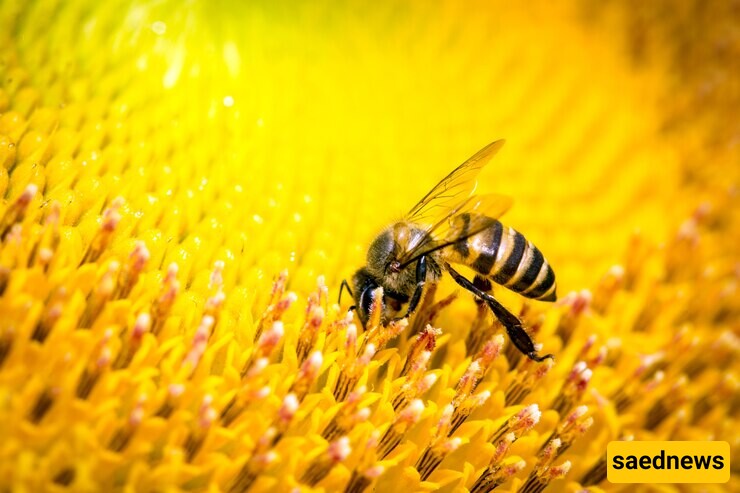SAEDNEWS: Famed for their pollination skills, bees also display impressive cognitive abilities, such as the ability to recognize human faces. Research shows that these tiny insects use intricate patterns and memory to identify and recall facial features, highlighting their remarkable intelligence.

According to SAEDNEWS: bees are typically associated with buzzing around flowers and producing honey, but their intelligence goes far beyond their reputation. One fascinating discovery reveals that bees can recognize human faces. This unexpected ability highlights their advanced problem-solving and memory skills, changing the way we view these vital pollinators.

Bees’ vision is unlike ours. Their compound eyes made up of thousands of tiny lenses, allow them to detect patterns and contrasts rather than fine details. They can even see ultraviolet light, which helps them locate nectar-rich flowers. Although bees do not see faces in the same way humans do, they can process facial features as a single pattern. By focusing on contrasts and shapes, bees create a mental "map" of faces. This ability enables them to recognize and remember individuals, particularly in controlled experiments where they’re trained to associate faces with rewards.
A groundbreaking study demonstrated that bees could differentiate human faces. Researchers trained bees to associate certain faces with a sugary treat. The bees quickly learned to return to the faces linked to rewards, proving their capability to process and recall facial patterns. Despite having brains smaller than a pinhead, bees use their limited neural resources efficiently. They simplify complex visuals into patterns, allowing them to perform tasks like facial recognition that seem far beyond their physical limitations.
In the wild, bees rely on their pattern-recognition skills to identify flowers and navigate their environments. This natural ability translates to facial recognition in experimental settings, showing how adaptable their cognitive processes are. Understanding how bees process patterns has broader implications for humans, especially in fields like artificial intelligence. Their efficiency in visual recognition could inspire advancements in robotics, where similar strategies could make machines more capable with fewer resources.
Recognition in Controlled Conditions
Bees’ facial recognition abilities were observed in structured experiments where conditions were optimized for their success. In natural environments, these skills are likely less reliable, as bees face countless distractions and variations in visual stimuli.
Simplified, Not Complex
While impressive, bees’ recognition abilities focus on basic patterns rather than nuanced facial details. Their process lacks the depth and complexity of human facial recognition, limiting their capabilities to specific scenarios.
Pollinators with Potential
This discovery underscores the importance of preserving bees, whose intelligence plays a crucial role in maintaining ecosystems. Their cognitive abilities go hand-in-hand with their ecological contributions, proving their significance beyond pollination.
A Wake-Up Call for Conservation
As bee populations face threats from habitat loss, pesticides, and climate change, understanding their unique skills can strengthen conservation efforts. Appreciating their intelligence adds urgency to protecting their habitats and ensuring their survival.
Bees show that intelligence isn’t about brain size but how resources are utilized. This principle could revolutionize how we approach technology, particularly in creating artificial systems that mimic natural efficiency. Studying bees reminds us of the interconnectedness of life. Their abilities reflect the complexity of nature and highlight how much we can learn from even the smallest creatures.
Bees’ ability to recognize human faces challenges conventional views of intelligence. Their advanced visual processing and memory capabilities showcase the incredible potential of small-brained creatures. By uncovering these hidden talents, we not only deepen our appreciation for bees but also gain valuable insights into nature’s design and how it can inspire us. As we continue to learn from these tiny yet extraordinary insects, their value becomes increasingly apparent—not just as pollinators but as a source of endless fascination and innovation.

